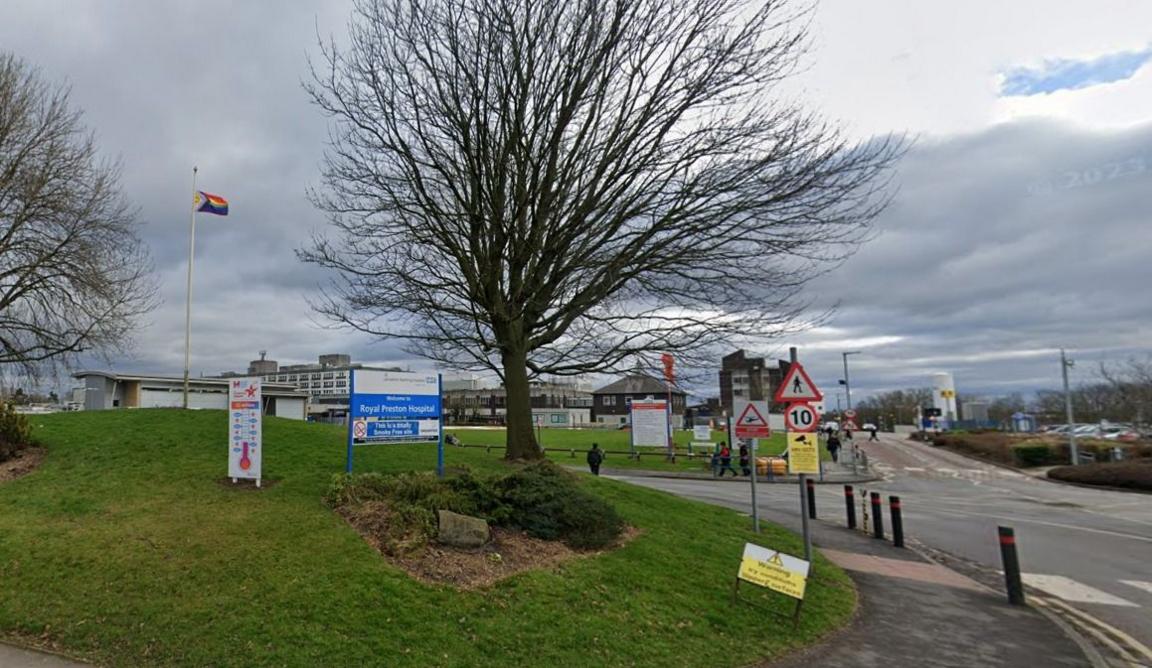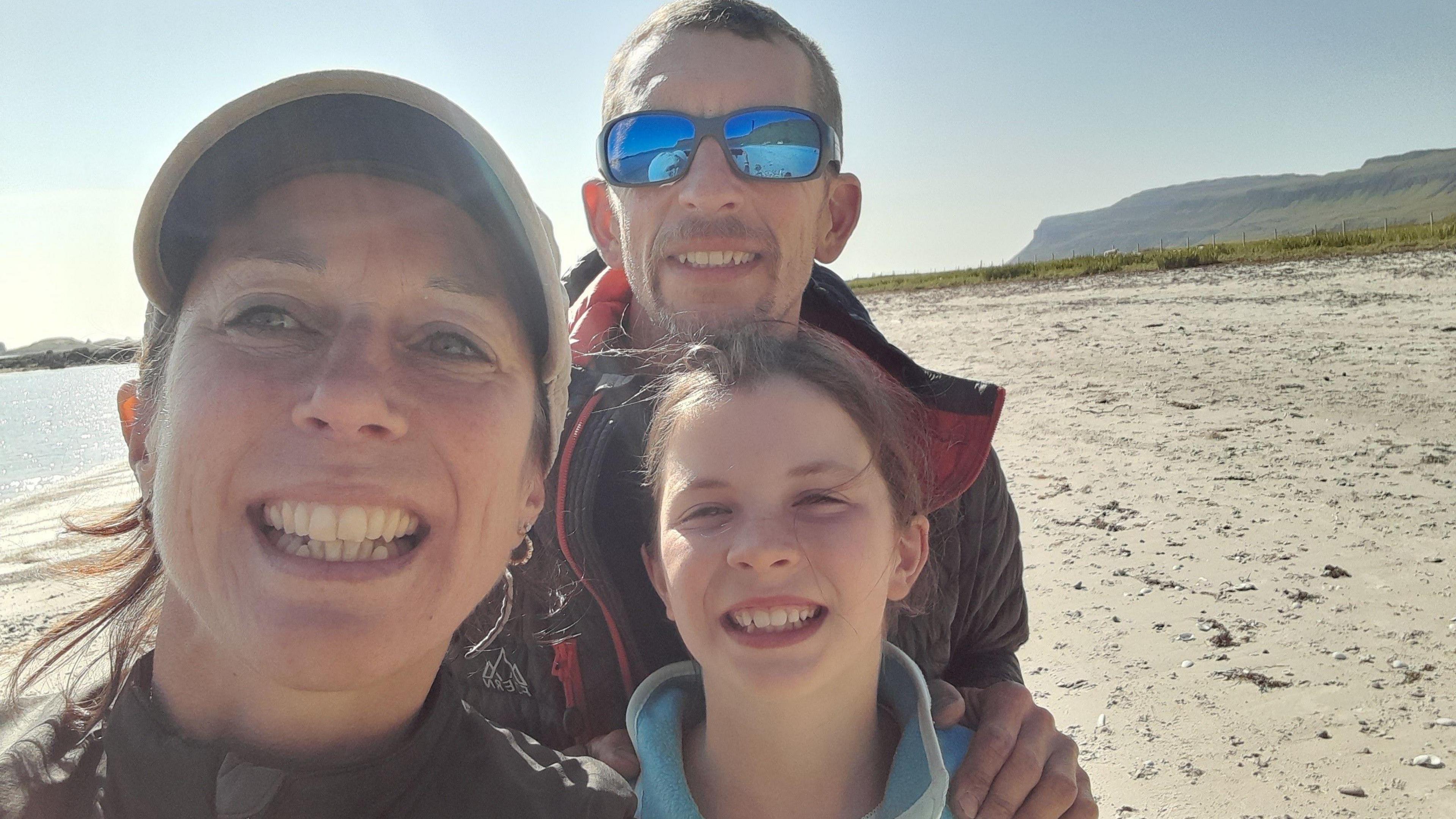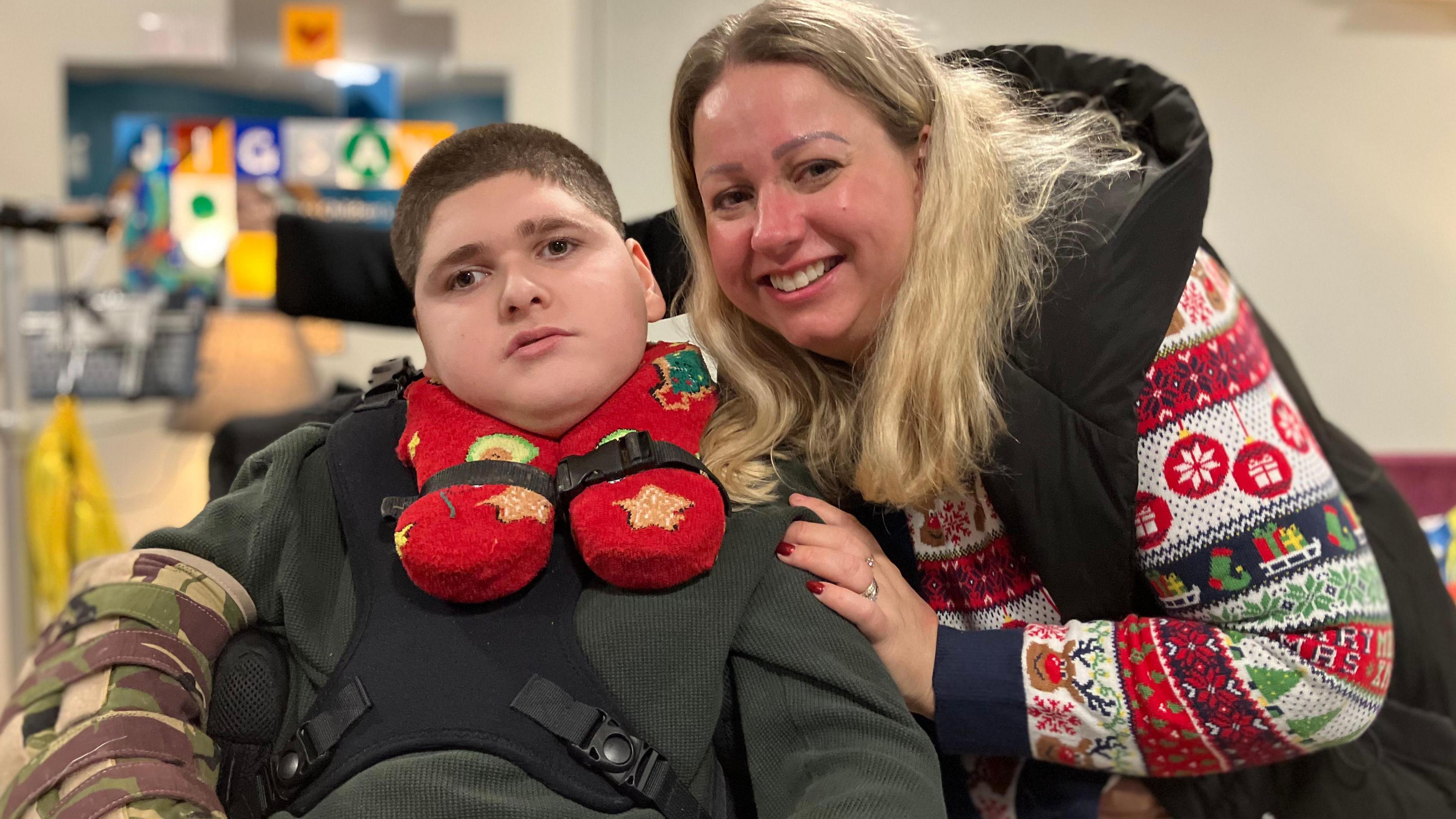Accommodation fee renews radiotherapy unit calls

The £25-per-night charge to stay at Bowland House was introduced on 1 February
- Published
Charging patients to stay at hospital accommodation has led to further calls for a radiotherapy unit in the South Lakes.
Preston Royal Hospital remains the closest for people in south Cumbria to travel to, and some facing long journeys have been able to stay for free at the hospital's Bowland House.
It recently brought in a £25-a-night charge, described as "a tax on ill health" by local Liberal Democrat MP Tim Farron.
Lancashire Teaching Hospitals NHS Foundation Trust said it received no funding for the facility or its running costs, and the charge helped protect it from closure.
Mr Farron, who represents Westmorland and Lonsdale, said the decision further strengthened the case for a radiotherapy unit at Kendal’s Westmorland General Hospital.
NHS England said a study showed it was "not a sustainable option" to establish a radiotherapy facility in Kendal due to insufficient demand, and patients would still need to travel to a specialist centre.
'Travelling was tough'
According to the trust there are 12 rooms available to patients and families, the Local Democracy Reporting Service said.
Those allowed to stay at Bowland House typically include people receiving cancer treatments, parents of neonatal babies, and those with relatives nearing the end of life.
Lancashire Teaching Hospitals said it is uncommon for NHS trusts to offer this type, or volume, of on-site accommodation.

Jane Reedy, pictured with husband Matt and daughter Tess, had to travel daily from Kendal to Preston for cancer treatment
Jane Reedy, from Kendal, had to travel about 40 miles to Preston for radiotherapy every day for five weeks, after she was diagnosed with oesophageal cancer in 2016.
Although she did not stay at Bowland House, she said it was "sad" and "hard" that the charge had been brought in.
"I think it's reflecting the state of the NHS and I don't believe they would've put that in place unless they really had to do that," she said.
"It's really tough travelling backwards and forwards, it's really tough being away from home.
"The whole cancer journey has so many different challenges that anything that could be done to make it easier needs to happen."
Mrs Reedy, who has since been given the all-clear, added that she believed it made an "even stronger case" for facilities closer to home.
'Tax on ill health'
In a letter to the trust, Mr Farron asked health bosses to reconsider the charge as families were struggling with the cost of living crisis.
“It is bad enough that my constituents are forced to travel long distances to access cancer services at present, without having the added worry of how they can afford to stay over if they are not physically well enough to return home daily and feels like a tax on ill health, when people are possibly at their most vulnerable in their lives.
"[They] should not have the additional burden of options being closed to them as they simply can’t afford to stay over when they are already paying for petrol to travel to access live-saving treatment.”
'As low as possible'
Lancashire Teaching Hospitals said Bowland House offered "high quality on-site accommodation" for a small number of patients and their families.
"It is only available to those who clinicians feel would benefit from staying here, rather than driving long distances between treatment or booking their own off-site accommodation," a spokesperson said.
"To date patients have been asked to make a voluntary contribution towards their stay, which has varied greatly, however the new £25 rate will ensure there is a more realistic contribution towards ongoing running costs."
It added that Rosemere Cancer Foundation and Lancashire Teaching Hospitals charity were making monthly contributions, allowing it to keep costs "as low as possible" in comparison to private accommodation.
NHS England said a study in 2020 showed it was "not a sustainable option" to establish a radiotherapy facility in Kendal, "as there is not sufficient demand".
"A quarter of patients requiring radiotherapy would still need to travel to a specialist treatment centre and equipment would only be used to half of its capacity," a spokesperson said.
The Department of Health has been contacted for comment.
Follow BBC Cumbria on X (formerly Twitter), external, Facebook, external and Instagram, external. Send your story ideas to northeastandcumbria@bbc.co.uk.
More stories from BBC North East and Cumbria
- Published11 December 2023
